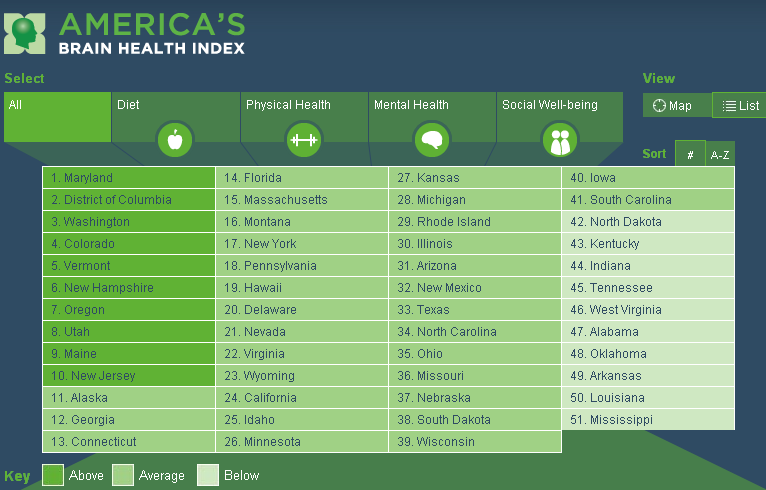Multivitamin Improves Memory in Older Men
 That is the conclusion of one study carried out on 51 men ages 50-74.
That is the conclusion of one study carried out on 51 men ages 50-74.
“The results showed multivitamin supplementation, compared to placebo, significantly improved recognition memory performance, although other cognitive function parameters did not differ between the treatment groups.”
The study goes on to suggest it might also help avoid age-related cognitive decline.
I am interest to hear from readers that use multivitamins to improve brain function or cognitive performance.
Categories: Cognitive Decline, Diet, Memory and Learning, Older Adult Tags: vitamins
Using Neuroscience to Optimize the Mature Mind
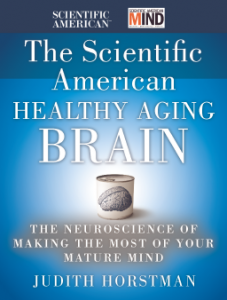 Just finished a good book by Judith Horstman where she explains the neuroscience of making the most of the mature mind. Her findings echo the discussions we have had on the Next Brain Blog. For example, Part three of the book explains in detail how exercise, nutrition, mental stimulation, being social and attitude play a central role in improving cognitive performance as we age.
Just finished a good book by Judith Horstman where she explains the neuroscience of making the most of the mature mind. Her findings echo the discussions we have had on the Next Brain Blog. For example, Part three of the book explains in detail how exercise, nutrition, mental stimulation, being social and attitude play a central role in improving cognitive performance as we age.
She pegs 20-60 years old as the zone of maximum performance for the brain but quickly points out some people peak later in their 70s, 80s and even 90s! She put the central idea of this blog, namely we are responsible for building our next brain, in plain language:
“You built the brain you have today and will continue to refine and remodel it with every action, thought, and feeling and every interaction with people, the experiences, and the environment around you.”
Have you read the book? If so what techniques or insights do think are the most important for building Your Next Brain?
Categories: Books, Cognitive Development, Older Adult Tags:
10 Years of Music Creates Big Cognitive Reserve
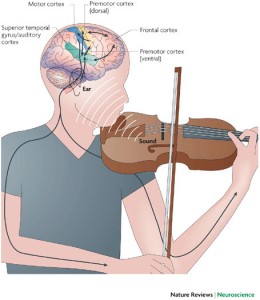 We have covered the importance of music for improving cognitive performance in several posts on the Next Brain Blog. Some researchers argue that learning to play a musical instrument is one of the best ways to improve and maintain brain function.
We have covered the importance of music for improving cognitive performance in several posts on the Next Brain Blog. Some researchers argue that learning to play a musical instrument is one of the best ways to improve and maintain brain function.
A new study, from Emory University supports this idea but provides some specifics:
“… musicians with at least 10 years of instrumental musical training remained cognitively sharp in advanced age.”
Even if subjects stopped playing at some point in life the positive effects linger as long as they played for at least 10 years. Through a decade of musical practice you build up a type of cognitive reserve that can be used later. As the article reports:
“This is an exciting finding in light of recent evidence suggesting that high educational levels are likely to yield cognitive reserve that may potentially delay the onset of Alzheimer’s symptoms or cognitive decline,…”
Ten years may seem like a large investment but developing a strong and resilient brain is a life-long process. Interested to hear from readers that have experience learning and playing a musical instrument. Are you building a cognitive reserve?
Source of Image: When Brain Plays Music
Categories: Music and Audio, Older Adult, Training Tags:
Tai Chi Boosts Brain Volume and Performance
 Research led by the University of South Florida found elderly Chinese that practiced Tai Chi three times a week scored significantly higher on thinking and memory tests than a control group. They also demonstrate that the volume or physical size of the subject’s brain increased rather than experiencing age-related shrinkage.
Research led by the University of South Florida found elderly Chinese that practiced Tai Chi three times a week scored significantly higher on thinking and memory tests than a control group. They also demonstrate that the volume or physical size of the subject’s brain increased rather than experiencing age-related shrinkage.
This is an interesting finding because it suggests a non-areobic form of exercise can improve brain function.
Tai Chi is a type of martial arts. It includes five training elements the most widely known being the slow solo hand movements. The training emphasizes focusing your mind exclusively on the motion being practiced. This produces a meditative-like calm which might account for the brain boosting effects.
For more details on the brain health benefits and a video introduction check out the Next Brain Blog post on Tai Chi for Cognitive Training.
Source of Image: China on the brink
Categories: Ancient Ways, Lifestyle, Memory and Learning, Older Adult Tags:
Perception of Age Impacts Cognitive Performance
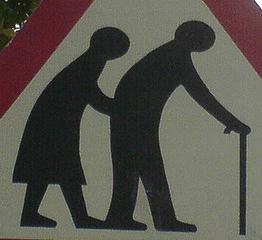 Your personal sense of age can have a dramatic (and measurable) impact on your cognitive performance. At least that is the result of recent research at the University of Exeter on a group of 60-70 year olds. Members of the group were primed to feel either older or younger, read two articles on the impact of age on cognition and then given a battery of clinical tests related to mental functioning including a dementia test. They found participants that viewed themselves as older were five times more likely to receive a dementia diagnosis. To quote:
Your personal sense of age can have a dramatic (and measurable) impact on your cognitive performance. At least that is the result of recent research at the University of Exeter on a group of 60-70 year olds. Members of the group were primed to feel either older or younger, read two articles on the impact of age on cognition and then given a battery of clinical tests related to mental functioning including a dementia test. They found participants that viewed themselves as older were five times more likely to receive a dementia diagnosis. To quote:
“Our research shows that the effect of age perceptions on performance can be dramatic, and that seeing oneself as ‘older’ significantly increases a person’s risk of being diagnosed with dementia on such tests.”
A strong result suggesting that our assumptions about age and how that impacts brain function can dramatically shape cognitive performance.
Categories: Cognitive Decline, Memory and Learning, Older Adult Tags:
Exercise Once Weekly Helps Avoid Mental Decline
While the Next Brain Blog is dedicated to techniques that improve brain function and enhance cognitive performance, I get a lot of email asking about ways to protect or maintain existing brain health. Fortunately, many techniques work both ways. They will boost your brain power or simply protect what you have depending on your age and the intensity of implementation.
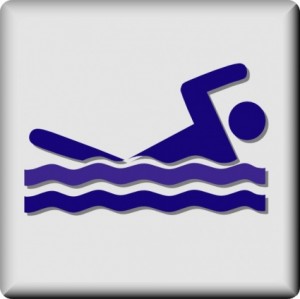 Take for example a recent study led by the Mayo Clinic that looked at the role of exercise and computer use in avoiding mild cognitive impairment in older adults. A key finding:
Take for example a recent study led by the Mayo Clinic that looked at the role of exercise and computer use in avoiding mild cognitive impairment in older adults. A key finding:
“Even exercising once a week was beneficial. Most of the participants seeing the greatest benefits were exercising five to six times a week combined with computer activity,” says Geda.
The benefit in this case is avoiding age-related memory loss.
On the other hand, walking and exercise has been found to improve cognitive performance not just avoid memory loss. In one example participants had to walk at least 3 times a week for 40 minutes.
Perhaps the habits we develop to boost our intelligence will also be the habits that we need to maintain brain health as we age.
Categories: Cognitive Decline, Lifestyle, Older Adult Tags: exercise
Use the Latest Science to Maintain Brain Health
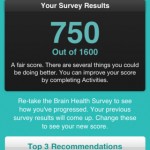 Do you have an iPhone or iPad and want to lower your risk of Alzheimer’s disease or other forms of dementia? Check out the the free BrainyApp. It let’s you apply the latest neuroscience to assess your risk and develop recommendations for keeping your brain and heart healthy.
Do you have an iPhone or iPad and want to lower your risk of Alzheimer’s disease or other forms of dementia? Check out the the free BrainyApp. It let’s you apply the latest neuroscience to assess your risk and develop recommendations for keeping your brain and heart healthy.
Not surprisingly the risk factors that the app uses are related to lifestyle and include diet, smoking, blood pressure, weight exercises and lack of mental activity. And the factors work together. For example, one study found that high salt diet combined with inactivity in older adults contributed to cognitive decline.
Interested to hear from readers that have used this app or similar apps to gain insight into how lifestyle choices impact brain health.
Categories: Cognitive Decline, Lifestyle, Older Adult, Software Tags:
More than 50% of Brain Health is up to You!
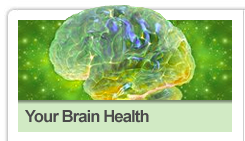 At least that is the conclusion from a review of the current state of research described on the Beautiful Minds website. The site is a educational effort by the National Center for Creative Aging and Martek Biosciences Corporation. They define brain health in terms of four dimensions:
At least that is the conclusion from a review of the current state of research described on the Beautiful Minds website. The site is a educational effort by the National Center for Creative Aging and Martek Biosciences Corporation. They define brain health in terms of four dimensions:
- The nourished mind
- The mentally engaged mind
- The socially connect mind
- The physically active mind
They have a quiz you can take to see where you stand and have even developed a brain health index for all 51 states.
As you can see Maryland is ranked #1 and Mississippi is ranked last. When you go to the site you can click on each state and get more details including an analysis of strengths and weaknesses.
All the tips they offer have been covered elsewhere on the Next Brain blog but it is useful to review them. The site also offers inspirational stories, a beautiful mind contest and resources for the healthcare professional. Check it out and let me know what is most useful.
Categories: Cognitive Decline, Diet, Lifestyle, Older Adult Tags:
Hard Evidence that Meditation Changes our Brains
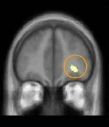 Mediation and mindfulness training is a frequent topic on the Next Brain Blog. Over the last several years we have seen studies that show a few weeks of meditation can produce measurable improvement in cognitive function and long-term practice actually makes certain brain regions larger. Now researchers at UCLA report in, Is Meditation the Push-Up for The Brain?:
Mediation and mindfulness training is a frequent topic on the Next Brain Blog. Over the last several years we have seen studies that show a few weeks of meditation can produce measurable improvement in cognitive function and long-term practice actually makes certain brain regions larger. Now researchers at UCLA report in, Is Meditation the Push-Up for The Brain?:
“… that people who meditate also have stronger connections between brain regions and show less age-related brain atrophy. Having stronger connections influences the ability to rapidly relay electrical signals in the brain. And significantly, these effects are evident throughout the entire brain, not just in specific areas.”
Changing the physical structure of the brain to preserve and enhance function and cognitive performance makes meditation a high-value training technique.
Interested to hear from readers that use any form of meditation. What technique do you use? How long have your practice? What Next Brain benefits do you see?
Categories: Cognitive Decline, Memory and Learning, Older Adult, Training Tags: meditation, mindfulness
Mental Training at the Edge but Not Over
 One reason video games are addictive is that the difficulty of play is automatically adjusted by how well you do. If you are scoring low the game becomes easier by dropping you down a level. Likewise if game play is too easy, the level of difficult increases and you are faced with a greater challenge. By dynamically adjusting the difficultly of play, you are always operating at “the edge of your seat” (or ability) and experience a rich sense of challenge and accomplishment.
One reason video games are addictive is that the difficulty of play is automatically adjusted by how well you do. If you are scoring low the game becomes easier by dropping you down a level. Likewise if game play is too easy, the level of difficult increases and you are faced with a greater challenge. By dynamically adjusting the difficultly of play, you are always operating at “the edge of your seat” (or ability) and experience a rich sense of challenge and accomplishment.
It seems that the same effect can improve brain training at least in older adults. Research reported by the Beckman Institute for Advance Science and Technology found that older adults stay engaged when the intellectual demands of a task optimally match their abilities. Furthermore they found that completing such tasks produced cognitive benefits.
“Stine-Morrow said that engagement in activities that are neither too easy nor too difficult, but push at the boundaries of one’s skill level, produces the highly pleasurable experience known as flow and that the experience of flow may be an important pathway through which older adults can stave off the declines in fluid ability that sometimes accompany aging.”
Intellectually challenging tasks include for example taking a class or reading. The key is to pick the one that keeps you in the optimal balance between challenge and reward. While the research is focused on older adults I suspect the effect works well at all ages.
I am interested to hear from readers that are able to brain train at the edge but not over. How do you adjust the difficulty level?
Source of Image: The Edge
Categories: Cognitive Decline, Lifestyle, Older Adult, Training Tags: experiential learning

